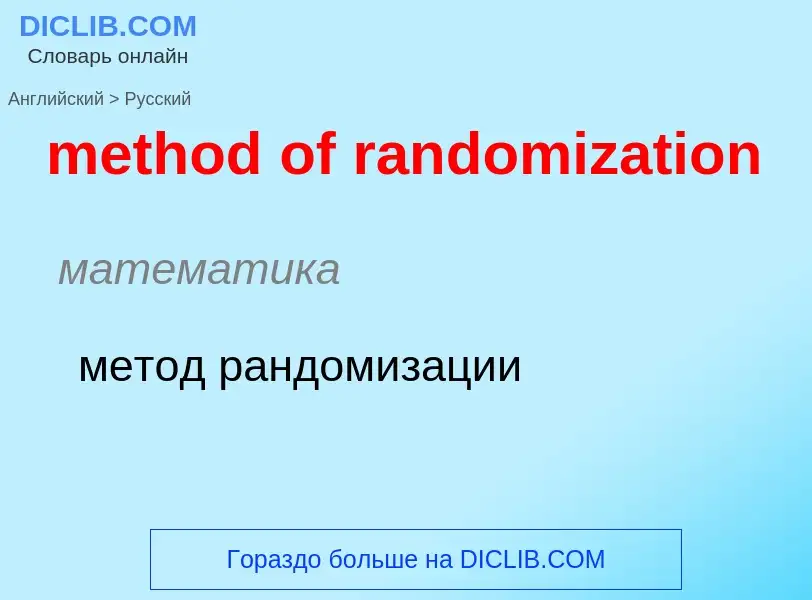Перевод и анализ слов искусственным интеллектом ChatGPT
На этой странице Вы можете получить подробный анализ слова или словосочетания, произведенный с помощью лучшей на сегодняшний день технологии искусственного интеллекта:
- как употребляется слово
- частота употребления
- используется оно чаще в устной или письменной речи
- варианты перевода слова
- примеры употребления (несколько фраз с переводом)
- этимология
method of randomization - перевод на русский
математика
метод рандомизации
общая лексика
метод изображений
нефтегазовая промышленность
метод зеркального отображения (скважины)
Определение
.
Википедия

In epidemiology, Mendelian randomization (commonly abbreviated to MR) is a method using measured variation in genes to interrogate the causal effect of an exposure on an outcome. Under key assumptions (see below), the design reduces both reverse causation and confounding, which often substantially impede or mislead the interpretation of results from epidemiological studies.
The study design was first proposed in 1986 and subsequently described by Gray and Wheatley as a method for obtaining unbiased estimates of the effects of a putative causal variable without conducting a traditional randomized controlled trial (i.e. the "gold standard" in epidemiology for establishing causality). These authors also coined the term Mendelian randomization.






